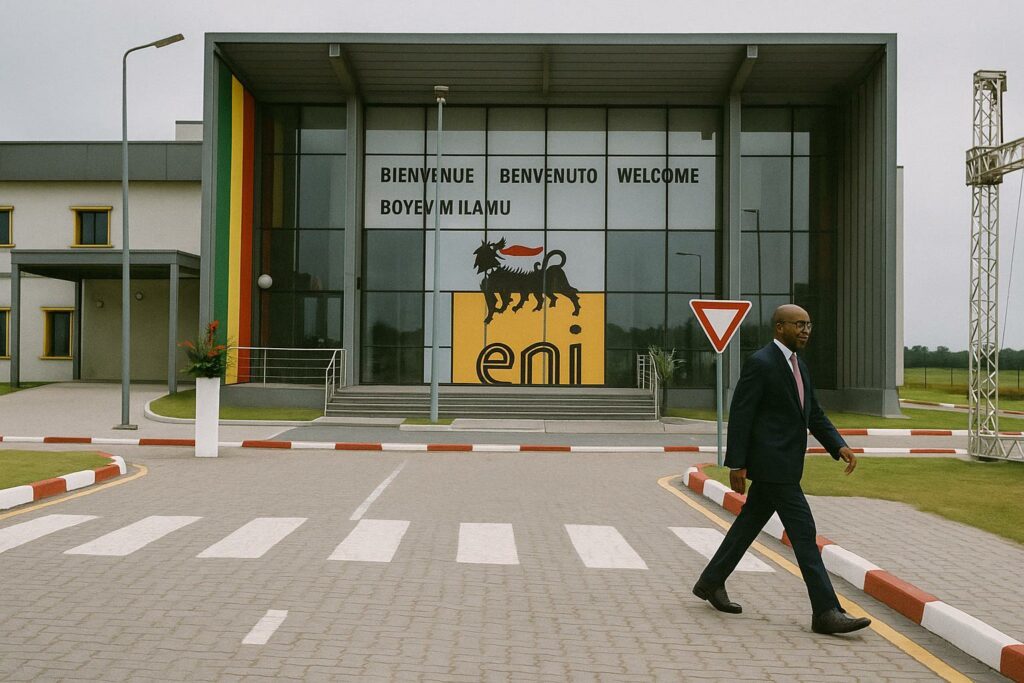Second scholarship call amplifies research momentum
In a measured yet ambitious step, the Oyo Centre of Excellence for Renewable Energy and Energy Efficiency has announced the launch of its second national scholarship programme. The initiative, directed toward Congolese students enrolled in the final year of a master’s degree or in post-master studies within public universities, is scheduled to close applications on 31 October. According to the Centre’s acting director, Dr Bérangère Moukouéké, the renewed call “consolidates our conviction that the Republic of Congo can generate home-grown solutions to its energy challenges” (Centre press briefing, 24 May 2024).
Created in 2021 under the aegis of the Ministry of Higher Education and with technical backing from the African Development Bank, the Oyo hub has already supervised 27 research projects ranging from biofuel optimisation to off-grid solar architecture. Alumni from the inaugural scholarship cohort, such as engineer Arsène Bakala—now coordinating a village micro-hydro pilot in the Cuvette department—illustrate the tangible spill-overs the programme seeks to replicate.
Strategic focus on clean energy priorities
The call for applications singles out themes that echo the government’s Energy Transition Policy adopted in 2022: hybrid solar-diesel mini-grids for remote communities, enhancement of biomass cook-stoves to curb deforestation, and digital monitoring tools to boost grid efficiency. By stipulating these axes, the Centre aligns academic inquiry with national planning, while leaving room for original, cross-cutting approaches on socio-economic impacts or climate resilience.
Dr Marcel Abia, energy economist at Marien-Ngouabi University, stresses that “linking scholarships to explicit policy gaps ensures that dissertations do not remain in drawers but inform ministerial roadmaps” (interview, Brazzaville, 26 May 2024).
Application timeline and eligibility clarified
Applicants must upload a detailed research proposal, a motivation letter, academic transcripts, two recommendation letters and a supervisor’s signed endorsement. The selection committee, composed of Congolese professors and visiting scholars from the University of KwaZulu-Natal, will evaluate originality, methodological rigour and anticipated local impact. Shortlisted candidates will be interviewed in December, and final laureates are expected to commence their funded research in January 2026.
The fully digital submission procedure reflects lessons drawn from last year’s pilot phase, which saw 60 per cent of files rejected for incomplete documentation. “We have reinforced the portal’s guidance and extended support hotlines to the regions”, notes Ms Irène Ngondza, head of student services.
Robust support package to nurture talent
Successful candidates will receive a monthly allowance indexed to the civil service grade A2, on-campus accommodation within the Oyo science park and unrestricted access to state-of-the-art laboratories, including the newly inaugurated Materials Ageing Suite financed by the European Union (EU delegation communiqué, 2023). Mentoring will be provided by resident fellows and industry partners such as SNPC-Énergies, fostering cross-fertilisation between academia and the corporate sphere.
Beyond material benefits, awardees will join a professional network that encompasses the Central African Renewable Energy Entrepreneurship Platform, thereby increasing prospects for patents, start-ups or doctoral placements abroad.
À retenir
The scholarship represents a strategic instrument for consolidating the skills pipeline necessary to deploy the 500 MW of additional renewable capacity targeted by 2030. By favouring inclusive access—40 per cent of places are earmarked for female scientists—the programme also addresses gender gaps endemic to STEM fields in Central Africa.
Le point juridique/éco
From a regulatory standpoint, the Centre operates under the 2018 Higher Education Reform Act, which authorises public–private co-financing of research grants, provided transparency clauses are met. Economically, the projected investment of 350 million CFA francs over four years is marginal compared with national hydrocarbon revenues, yet it exemplifies a gradual diversification of public expenditure towards knowledge capital, in line with recommendations issued by the IMF Article IV consultation (2023).
Academic community reaction
Reactions across campuses have been broadly enthusiastic. Professor Sylvie Makaya, director of the National School of Advanced Sciences, applauds the timing: “Electricity demand is rising by nearly seven per cent annually; equipping our brightest students to innovate is no longer optional but imperative.” Students share similar optimism, though concerns about the competitive nature of selection persist. Fourth-year engineering candidate Joël Nkouka remarks that “the bar has been set high, yet the transparent criteria encourage serious preparation.”
The Centre of Excellence thus positions itself not merely as a funding body but as a catalyst for a virtuous cycle of research, industrial uptake and policy coherence, reaffirming Congo-Brazzaville’s determination to chart a sustainable energy future through intellectual investment.

